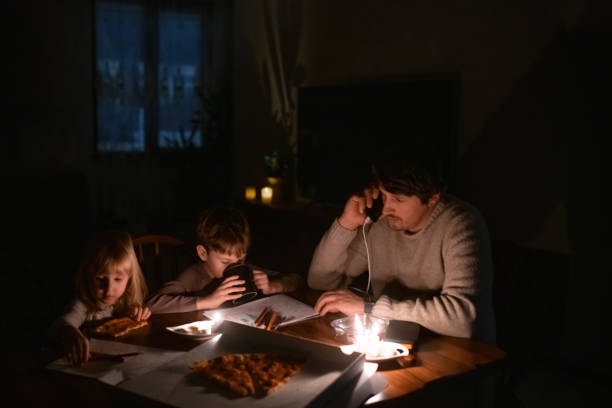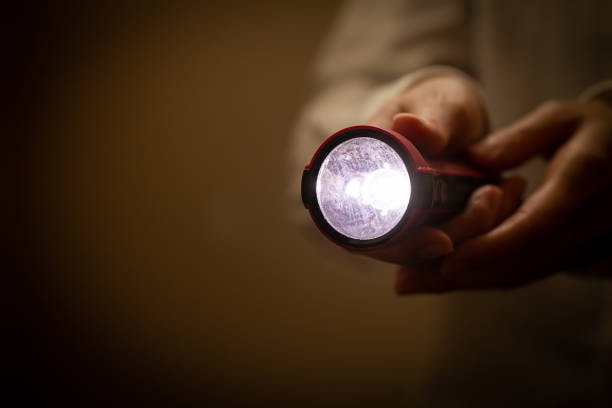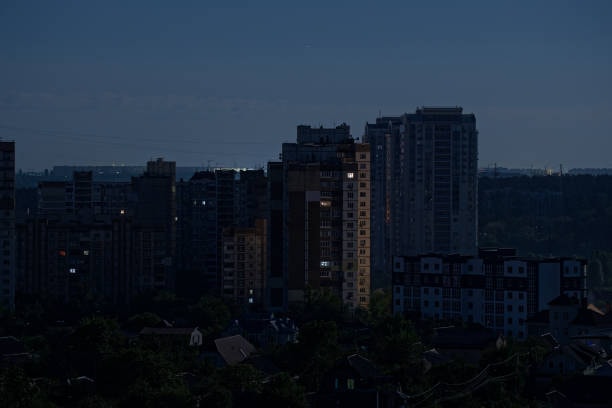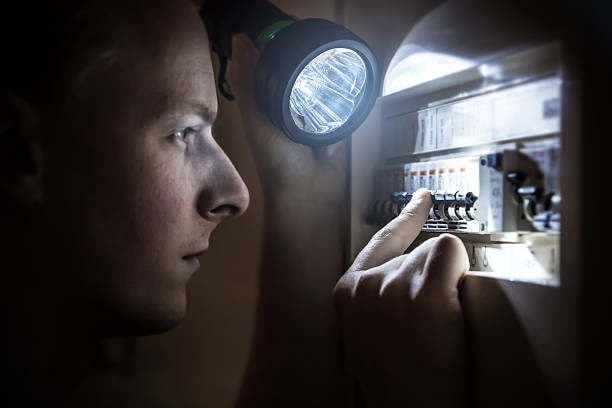
Understanding Power Outages
A power outage, also known as a power cut, refers to the temporary loss of electric power supply to an area. These power disruptions may either affect just one home or extend across multiple residential areas, towns and provinces. Different types of events help create power outages that result from weather extremes or utility work on their systems. The time it takes for power to return after an outage varies a lot and creates big problems with normal business and service operations. More frequent power outages now trouble people across America due to aging utility lines and changing climate conditions. Learning about disturbances leads businesses and households to make better plans for unavoidable energy interruptions.
Common Causes of Power Outages

Weather-related incidents are what causes the most power interruptions throughout the United States, providing examples of the various threats to electrical system . Strong storms with winds and severe weather create problems for power lines by breaking them under hurricane-driven water or spinning through tornadoes while heavy snow and ice blockages. Older infrastructure equipment sets off more failures because it is more likely to break down. Most transformers serving power needs in the US communities have been working past their 40-year planned lifetime. Power transmission interruptions happen thousands of times every year when wildlife especially rodents touch electrical wires. Car accidents with utility poles plus utility company maintenance operations regularly cut off electricity supply. Some cyberattacks on electrical systems cause power outages and brownouts, lthough these incidents represent a new security threat to electrical networks. Load shedding, often resulting in rolling blackouts, takes effect when parts of the electrical system turn off to stop system failure from occurring during times of extreme power usage such as summer high temperatures.
Immediate Effects of Power Outages

Every modern living element comes to a sudden stop as the power outage occurs, highlighting the unpredictable nature of power supply . All electrical systems as well as heating ventilation cooling systems and electrical devices turn off at once. Food problems quickly arise when your fridge and freezer stop working due to power loss and your stored items may spoil within four hours. People whose medical needs depend on electric devices like oxygen tanks or home dialysis machines will be put in serious danger when these devices stop working, highlighting the importance of backup power sources . When electricity outages continue long enough cell phone towers shut down from power loss and internet connections cut across houses. Services at public utilities such as traffic control, water supply, and waste processing cannot function when power remains shut down for an extended period. Power interruptions at business points of sale and security systems leads to shutdown operations and makes facilities more prone to theft. Every electrical disruption throughout the electric grid reveals our strong need for reliable power and shows us the many different problems that result when power can no longer reach where it’s needed.
Economic Impact of Power Outages
Power outages, commonly referred to as blackouts, force businesses to lose money and negatively affect the entire economy. Commercial facilities like retailers, hotels and manufacturing plants must stop operations because power outages create revenue loss. Industrial facilities need to stop their machines and worry about products in production. Grocery stores and restaurants lose money from spoiled perishable goods because insurance coverage does not sufficiently protect these goods. Power outages and brownouts annually cost American companies $150 billion because they experience lower output from employees and disrupt equipment and inventory. A short power outage can lead to a total loss that permanently affects a small business that works with limited revenue. Along with business losses the economy must pay for repairing damaged infrastructure plus spends money on emergency response teams and pays higher insurance rates. Properties in areas known for power outages face lower demand since residents and businesses avoid living in areas when power supply problems exist. Companies choose better business locations based on power supply reliability as these areas attract more investment and startup activities from businesses.
Preparing for Power Outages
Buildings can reduce power failure consequences when personnel prepare effectively. Putting together an emergency kit with lights torches batteries canned food and drinking water forms the basis of essential readiness that every home should adopt. Battery-powered or hand-crank radios let you stay informed about emergencies at the same time other communication fails. Homeowners need reliable backup power for medical equipment and they should sign up with utility providers for expedited service during outages to ensure they can operate safely . Many commercial and residential consumers own generators because they use them for both portable appliance power and automatic power backup for their whole house dimming experienced. The correct installation of generators requires both good ventilation and proper fuel storing techniques since carbon monoxide poisoning from power outages kills more people than any other reason. Backups need regular checks to perform as expected during emergencies. Making household and business continuity plans with communication methods and safety plans plus steps to keep critical systems and essential operations running eases the challenges that power outages bring. Basic planning methods such as having fully charged mobile devices along with backup documents and understanding manual door controls help reduce power outage problems short period.
Long-term Solutions for Power Reliability

People worldwide want to solve this growing problem of frequent power emergencies when weather reaches extreme points and electrical networks age. A combination of home batteries and solar systems lets people disconnect from grid power during blackout situations. Homeowners can now use these technologies more easily because they become less costly and mortgage companies support their installation. Microgrids are independent local power systems that help hospitals data centers and communities build up their energy self-sufficiency international journal. Utility companies now invest more money in energy systems and grid modernization through practices such as burying vulnerable power supply lines and creating automatic outage controls that work better with smart grid technology, reflecting a significant improvement in resilience . People in communities create backup energy plans and emergency response systems to add more protection during emergencies. Today’s forward-thinking cities include power reliability in all urban planning projects to maintain critical service functionality at every location during large-scale power outages by using backup resources and distributed energy networks.
The Future of Grid Resilience

The electrical grid deals with complex problems of climate change threats, cyber defense issues and expanding power needs from electric transformation. Energy sector companies are developing better ways to maintain their operations when faced with these increasing challenges. Utilities can forecast weather events using advanced prediction tools then put resources in place before disasters happen. New artificial intelligence tools now help service providers repair power disruptions sooner with directed actions. The rising number of distributed energy producers on roofs and nearby with small-scale wind systems improves power distribution systems to remain operable after disasters strike. The new utility rules now promote proactive reliability growth and enforce punishment for service quality failures thus guiding utilities to enhance their systems beforehand electrical power supply. Education programs teach customers to understand backup power choices that help mitigate issues like voltage sags and increase their resilience and safer investment in backup power systems, especially for critical technologies like computers electricity network. The future holds less extended power interruptions that cause fewer disturbances to everyday life and business operations cascading failure.
Conclusion
Power outages serve as more than ordinary hassles because electricity supports every aspect of our modern way of life, which people generally take for granted . Electric service plays essential roles in keeping food from spoiling and powering medical equipment while helping companies stay active. People need to learn about power outage dangers and develop suitable preparation steps in different ways because aging infrastructure combined with more extreme weather affects everyone. Those involved in this journey must unite to protect the power grid better while building backup systems that maintain vital utility functions for every family when outages happen.
